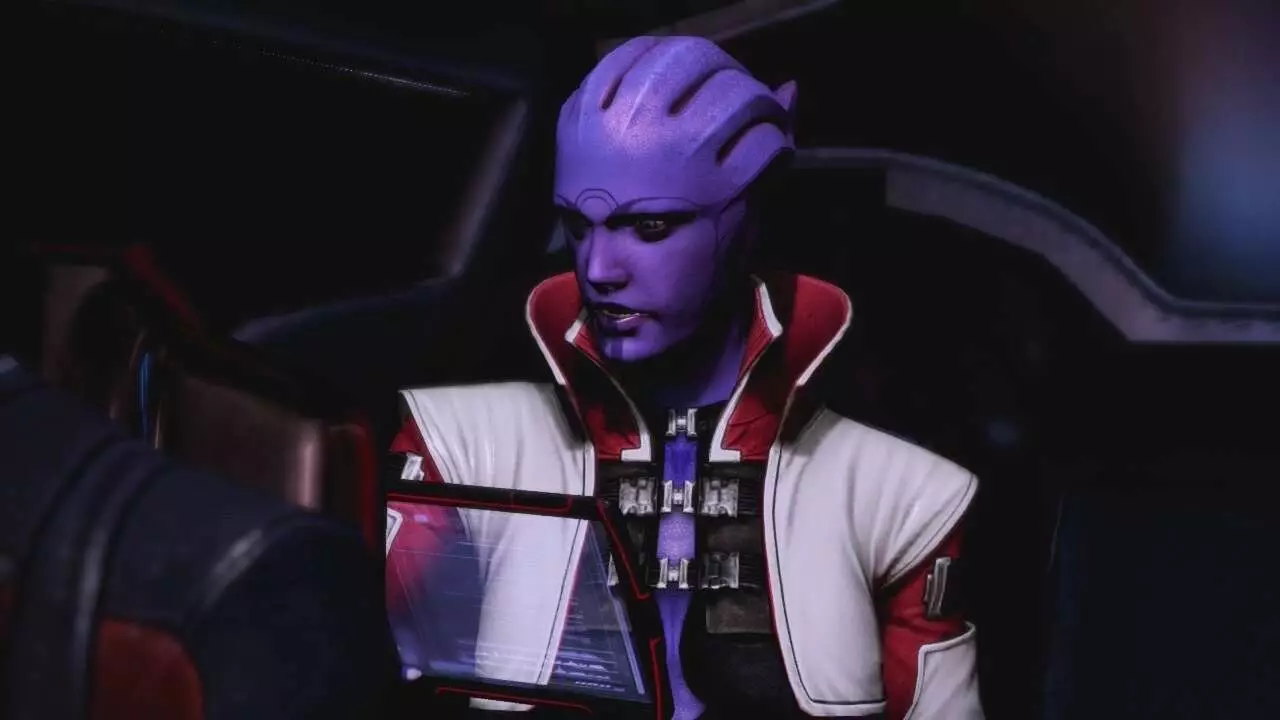The beloved universe of Mass Effect is being tailored for the small screen, with the long-rumored TV series finally gaining momentum. After languishing in development limbo since its initial reveal in 2021, the project has found new life under the auspices of Amazon MGM Studios. The re-energized venture has reportedly secured showrunner Doug Jung, a seasoned writer with a diverse portfolio, including work on critically acclaimed projects such as Netflix’s *Mindhunter* and the blockbuster *Star Trek Beyond*. Jung’s involvement signals a promising direction for fans eager to see the intricacies of Commander Shepard’s universe realized with the depth and emotional resonance that the franchise embodies.
The Significance of the Showrunner
In television, the showrunner is akin to a ship’s captain, steering creative decisions and ensuring that all parts of the production are coherent and engaging. With Doug Jung at the helm, expectations are naturally high. His experience balancing narrative complexity within intense genres suggests a capability for both the dramatic tension and the weighty moral choices characteristic of Mass Effect. Notably, he will also be juggling responsibilities for Apple TV+’s *Chief of War*, starring Jason Momoa, which raises questions about the feasibility of managing two major projects simultaneously. However, as fans know, the television landscape thrives on multitasking, and Jung’s dual roles may very well lead to innovative storytelling approaches that can bring the Mass Effect lore to life.
Creative Minds Behind the Series
In addition to Jung, the writing team brings a wealth of talent to the project. Daniel Casey, known for his work on the *Fast & Furious* franchise, is involved in writing and executive producing the show. The inclusion of BioWare’s Michael Gamble as an executive producer underscores the commitment to fidelity to the original source material. Fans find hope in this lineage, as creators deeply embedded in the lore of Mass Effect can help sculpt a narrative that does justice to the franchise’s rich tapestry of characters and their epic choices.
With major producers like Ari Arad, known for his work on the *Iron Man* series, on board, it’s clear that the team recognizes the importance of marrying high production values with impactful storytelling. Yet, while all these elements present a strong case for a successful adaptation, the glaring absence of concrete plot details remains a point of concern. The task of navigating the intricate narrative landscape of Mass Effect—where choices lead to vastly different outcomes—will undoubtedly be an ambitious feat.
Why TV Makes Sense
One of the most compelling arguments for a Mass Effect TV series over a feature film is the narrative’s inherent episodic nature. As former BioWare veteran Mac Walters noted, the multifaceted storylines and character arcs lend themselves far better to a serialized format. In television, there’s room for exploration—time to delve into character backstories, world-building, and the complex moral dilemmas that define the series. Unlike a film, which is constrained by a limited runtime, a TV series can unfold narratives organically, allowing emotional beats to resonate and stakes to amplify over multiple episodes.
The Competitive Landscape
With the expansion of video game adaptations in recent years, including Prime Video’s *Fallout* and the forthcoming *God of War* series, the pressure is on the Mass Effect project to stand out in a crowded market. This context offers both a challenge and an opportunity; the potential for crossovers and shared universes is tantalizing yet begs the question of originality. How will the Mass Effect series carve out its niche among contemporaries? The stakes are high, not only to deliver faithful renditions but also to innovate and appeal to both hardcore fans and new audiences who might not have traversed the galaxy of Mass Effect yet.
As BioWare also works on a new game in the franchise, it will be intriguing to see how the narratives interplay. The potential for synergy between the game and the TV series could engender a richer universe for fans to immerse themselves in, creating a comprehensive transmedia experience that expands beyond traditional storytelling boundaries.
The journey towards the successful launch of the Mass Effect TV series is fraught with challenges, yet the elation surrounding the revival reflects a community eager to reconnect with a narrative that transcends traditional norms—a narrative tightly wound through choice, consequence, and the richness of character development. With the right creative vision, the stars may finally align for this long-anticipated revival.

